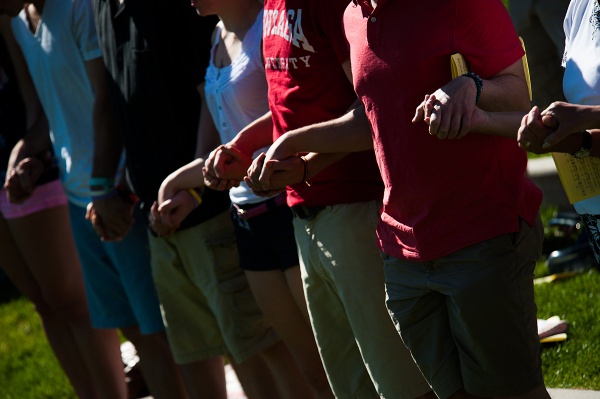Sister Fran Stacey uttered the word frequently during my week long visit to her tiny El Salvadoran village. When eating at the table in her cinderblock house, when driving the rutted dirt roads connecting rural homes, when fanning ourselves on the front porch on breezeless
evenings. I heard it mentioned in her prayers in Spanish – “soliaridad” – when she gathered with her neighbors.
And then I saw it. When the people shared about their recovery from guerrilla warfare tearing apart their families. When they rebuilt homes after Hurricane Mitch. When they piled into Sister Fran’s truck in the middle of the night, accompanying a man to the hospital for treatment he couldn’t afford.
That was 2001, and over the years, solidarity has come to mind many times, often during the crises that bring us together to help those in need. But more often, the opportunity to stand in solidarity with others comes in the everyday moments. In the friend who struggles with addiction, the groups who feel perpetually excluded, and others who feel threatened due to their identities and yearn for a trustworthy ally.
Most poignantly, we glimpse the need to work in solidarity to push the taboo of suicide out of the shadows.
In these pages there is solidarity among young attorneys who reject the work-based lifestyle of generations of law professionals before them. There is communion of Catholics and Native Americans who celebrated 175 years of friendship in this region and, most poignantly,
we glimpse the need to work in solidarity to push the taboo of suicide out of the shadows.
Jonathan Rossing, communication studies chair, gets the last word in his To Be Continued essay. It’s time to “see beyond our own interests and to be people for and with others who work together for everyone’s good.”
It is advice that I never tire of hearing.
Yours in solidarity,
Kate Vanskike, Editor
Gonzaga Magazine
